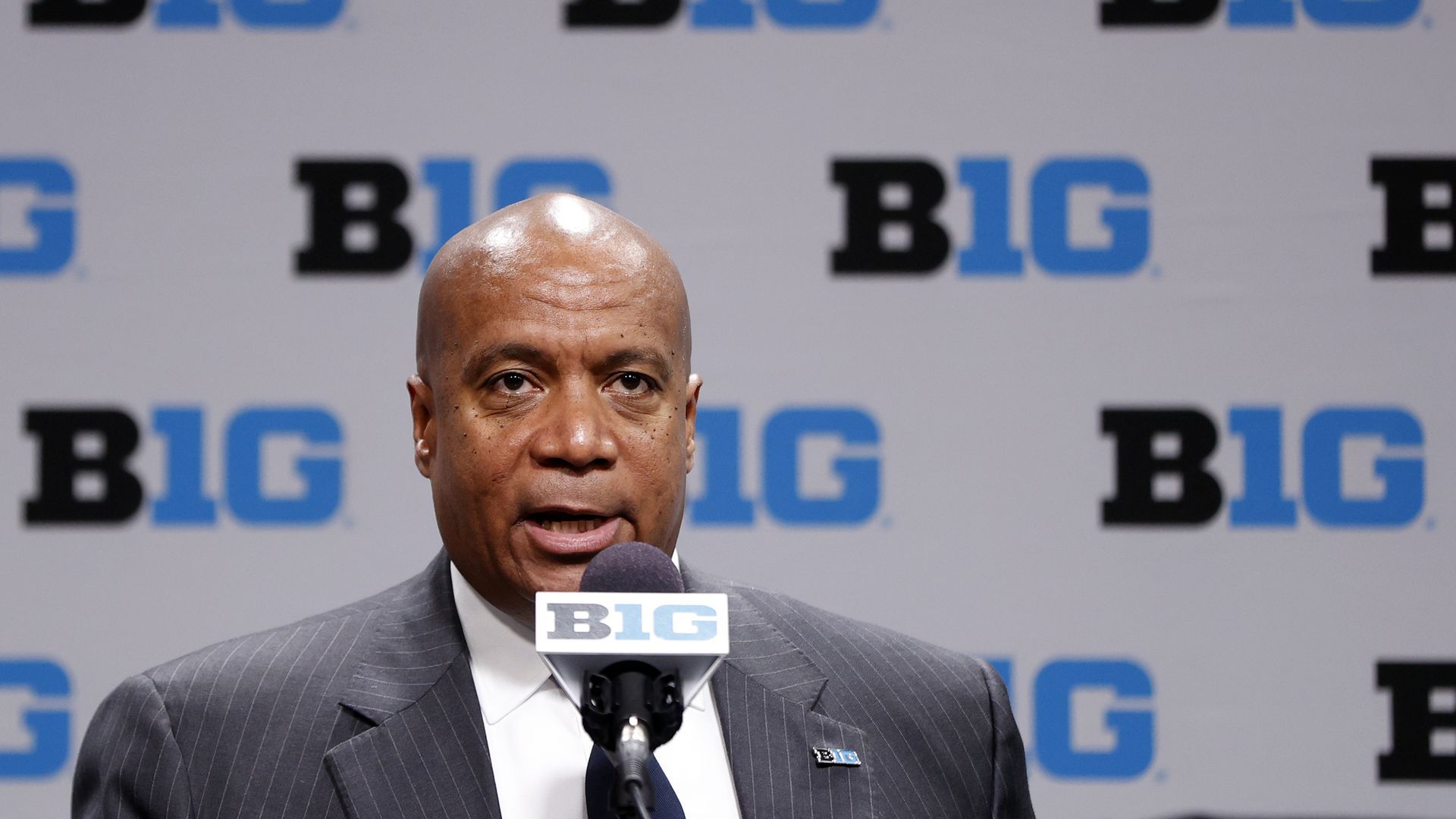Big Ten announces mental health cabinet
Add Axios as your preferred source to
see more of our stories on Google.

Big Ten Commissioner Kevin Warren. Photo: Joe Robbins/Getty Images
May is Mental Health Awareness Month, and for the Big Ten, it began with the announcement of the Mental Health and Wellness Cabinet.
Why it matters: This is the first major initiative in Kevin Warren's young tenure as the new Big Ten commissioner, and it will help elevate the mental wellbeing of athletes at a time when so much of the focus is on physical health.
Details: The cabinet is composed of 31 experts represented by each of the 14 Big Ten schools plus two affiliates — Notre Dame (hockey) and Johns Hopkins (lacrosse).
- The first tangible change they've made is purchasing subscriptions to Calm, the app aimed at reducing stress and anxiety, for all 9,600 of their student-athletes and coaches. But the general idea is to unify the heretofore siloed efforts to improve mental health.
"This was one of my key pillars, even when I interviewed for the job. This is all about the student-athletes, to tell how much we love, admire, respect, appreciate them, to give them the resources, that we're here, they can talk about it."— Kevin Warren, Big Ten commissioner
The big picture: Led by high-profile athletes like Michael Phelps, Kevin Love and Sean Doolittle, sports have recently experienced a major step forward in the cause of de-stigmatizing mental illness.
- "This is the most overwhelmed I've ever felt in my life. That's why I have times where I don't want to be me," Phelps wrote yesterday in an incredibly transparent story published on ESPN.
The bottom line: The pandemic has pushed mental illness to the background in favor of the more easily-digestible physical aspect of the virus, and in that way, Mental Health Awareness Month has come just in the nick of time.
Go deeper: Some schools give mental health days as young Americans' suicide rate rises
